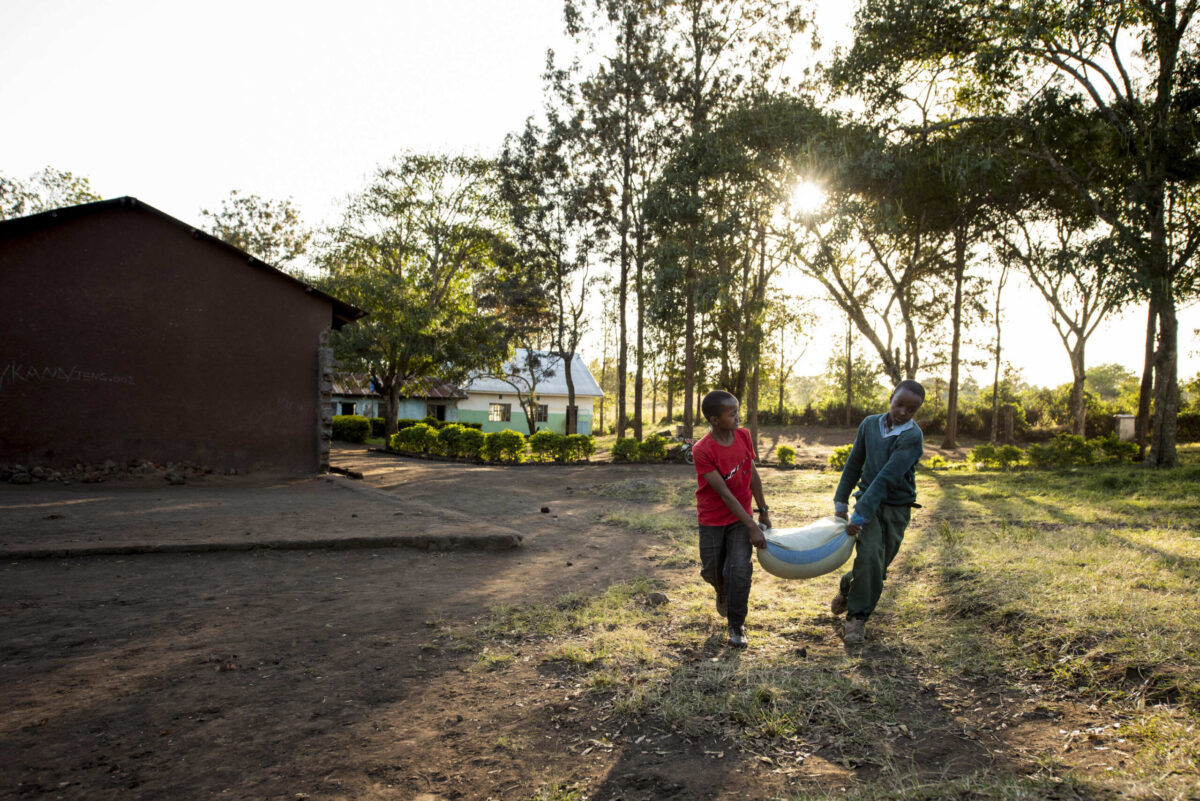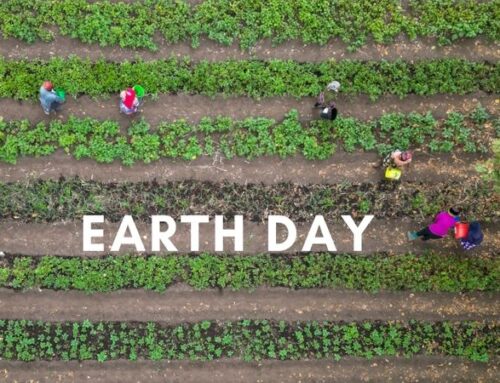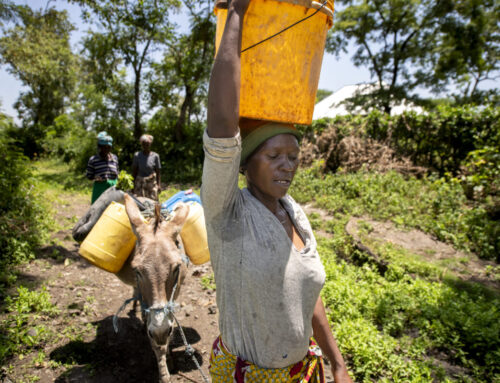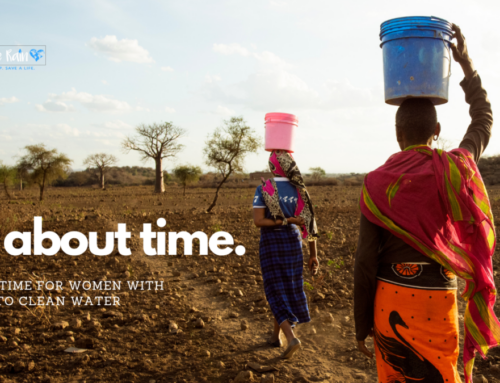We’d visited the women of Lositeti when we learned that the school was no longer serving its students a midday meal.
There was no food to serve.
Education is free in Tanzania, but schoolbooks, uniforms and food are not. Each student is required annually to contribute dried corn, dried beans, money for oil, maize milling and the cook’s salary. Many parents are farmers and contribute from their harvest.
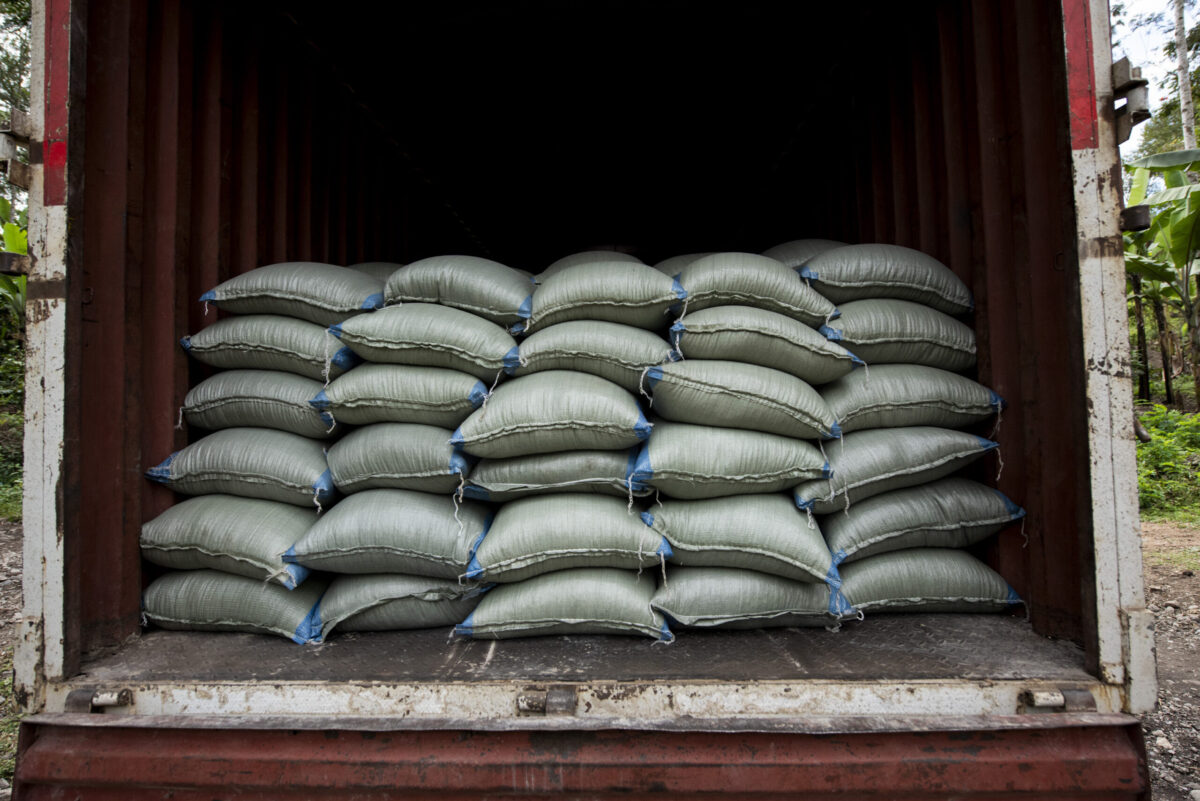
This year though, there’s been a drought.
The toil of the soil didn’t bear fruit. Earth did not yield up her bounty of abundance. The crops have failed, meaning no harvest to contribute. The little there is to buy is priced out of reach for most.
Lositeti is a particularly harsh environment, but they are not alone. We checked in with the District Education Officer, who gave us a list of 40 other schools under his jurisdiction that are in the same predicament.
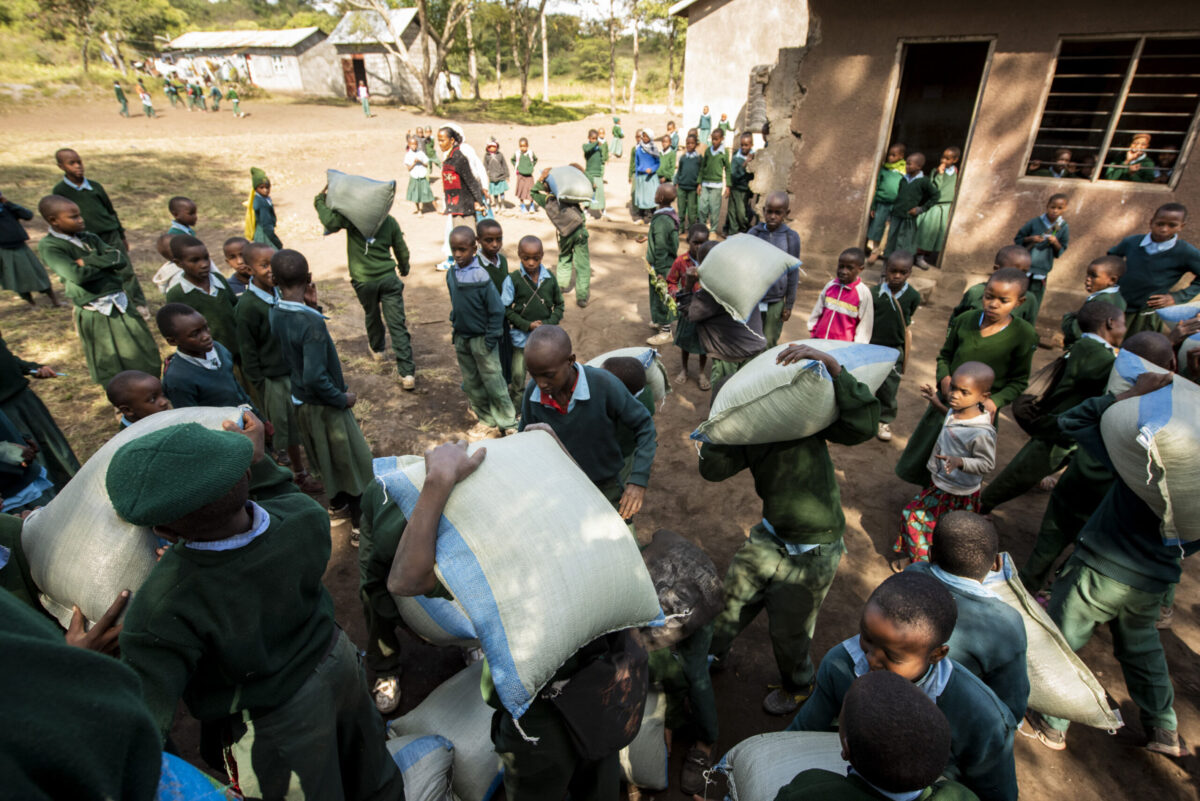
Growing bodies and expanding minds need food to fuel them.
Many children walk long distances to class. In the schools we’ve built rainwater harvesting systems and planted permaculture gardens for, we’ve seen a marked improvement in attendance and grades.
We’ve also seen what a make-or-break factor education is. It’s the difference between climbing up or down the ladder – condemnation of poverty’s downward spiral or a chance at something better. While we’re normally in the business of saving the rain, we decided to start donating food.
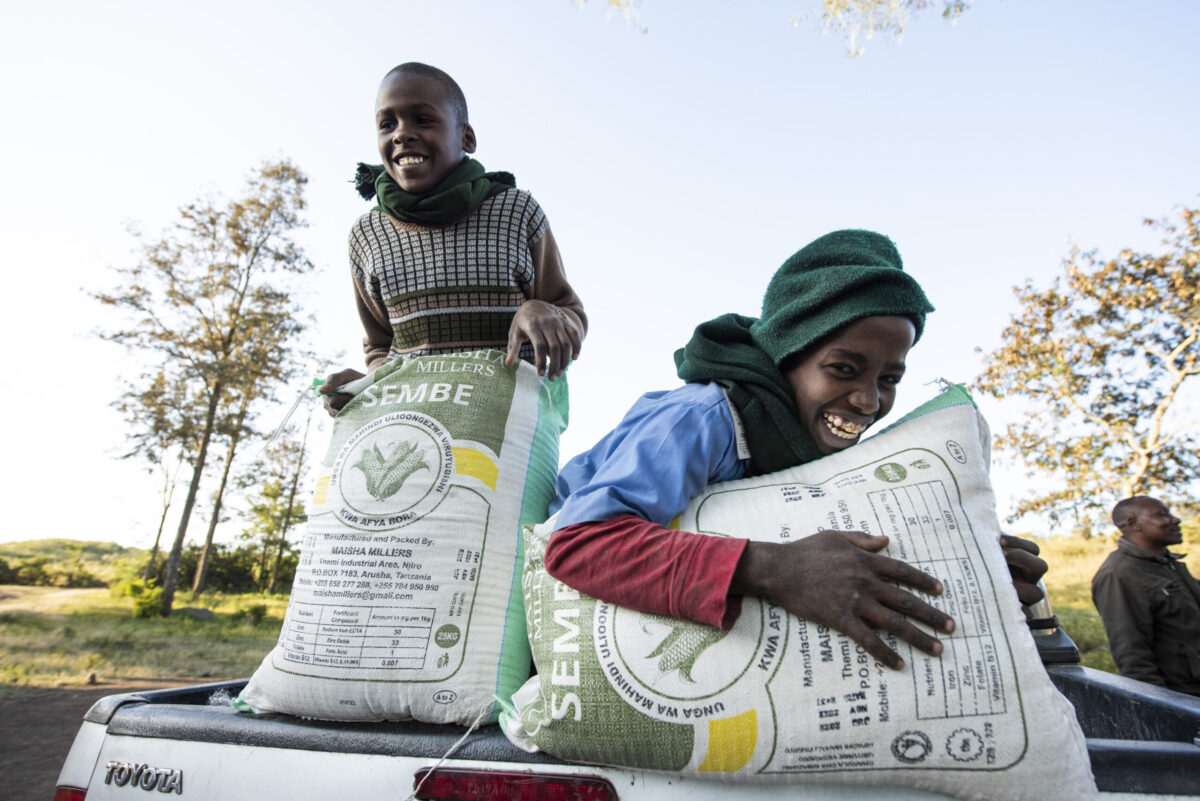
Our first stop is Kandashe Primary. Our truck is packed high with sacks of cornmeal and mung beans. Cornmeal makes ugali, which is Tanzania’s equivalent of grits. Mung beans pack high nutritional value.
Kandashe’s food ran out in June. Many parents couldn’t contribute. The school couldn’t single their kids out and not serve them food. It means there’s less to go around, and now, there’s nothing left. Likely, most students aren’t getting a good meal at home either.
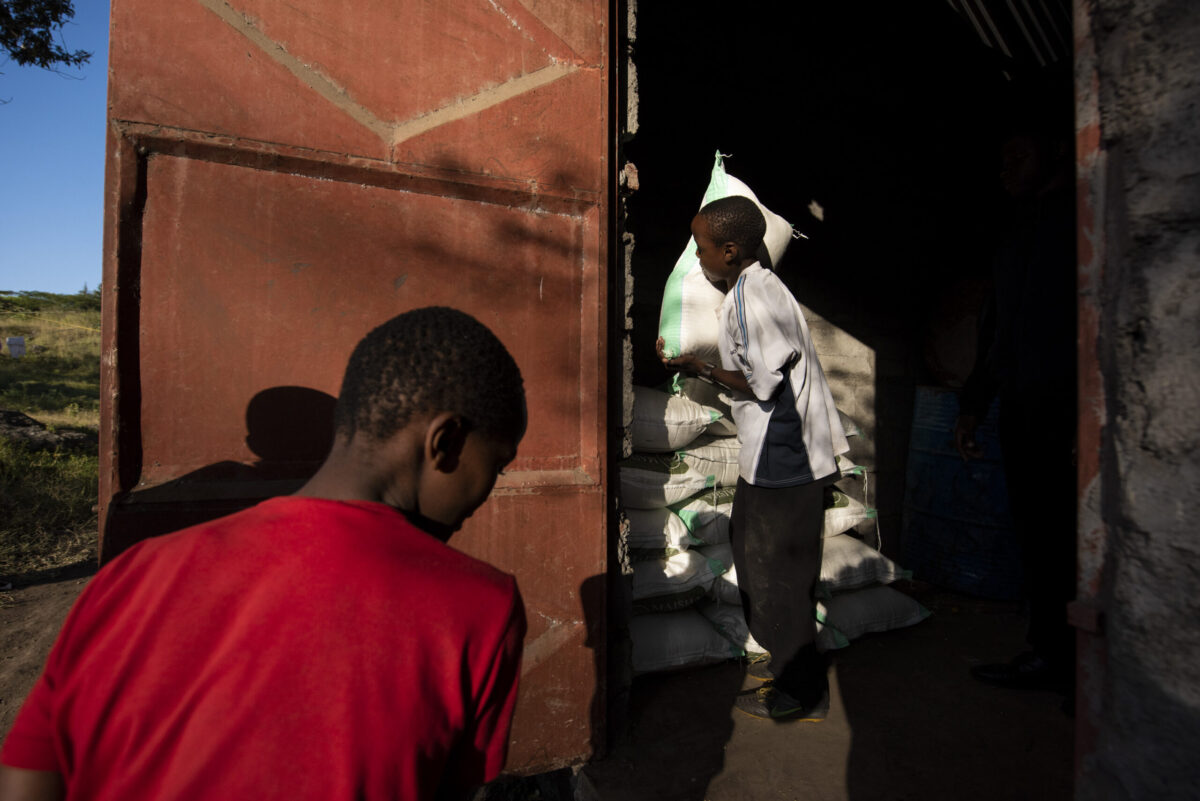
Delivering hope
Kandashe is 16 miles from the main road, almost entirely uphill on rocky tracks. Our truck gets stuck en route. Classes end at 3 pm. Despite their empty bellies, a cheerful rabble pours into the football field to play.
It’s nearing dusk by the time the food is delivered. As it arrives, the children swarm around us, leaping to help. Quick, eager, and joyful as they make light work of the heavy sacks, ignoring our protests.
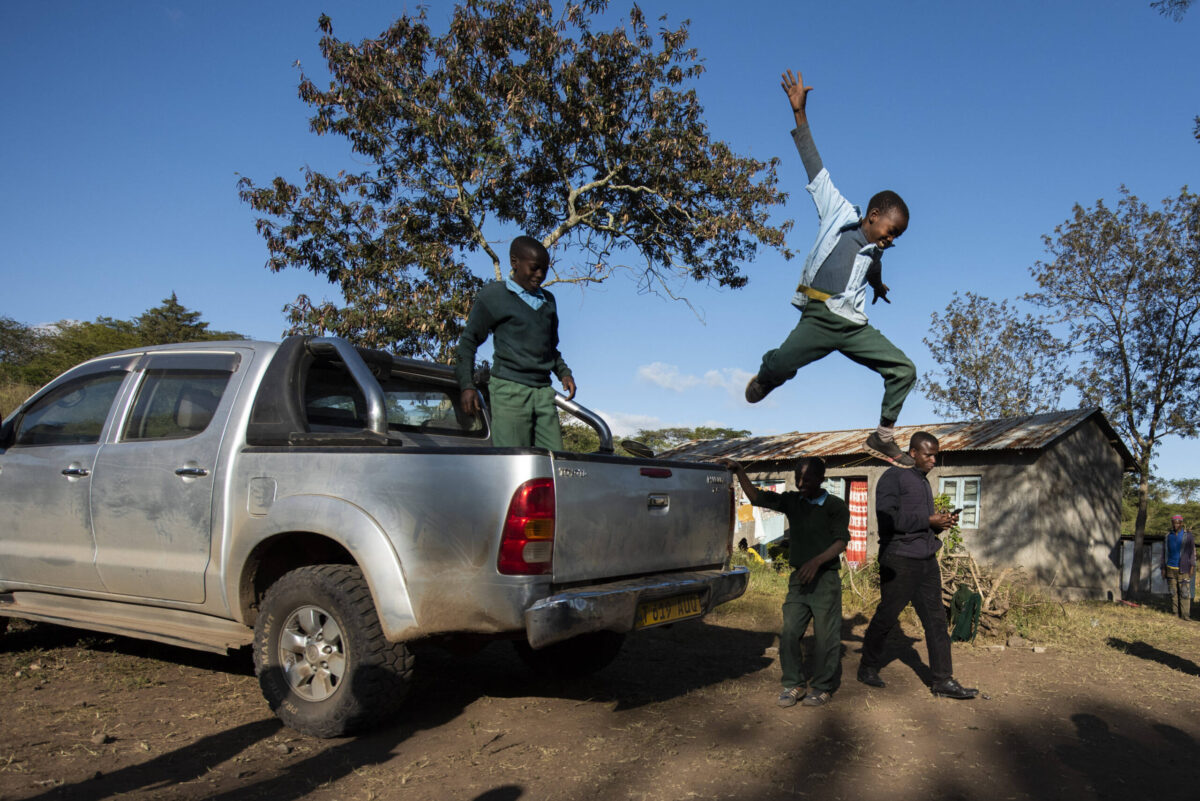
Looking ahead
There are 116 schools in this district alone. The food we’ve donated will get Kandashe Primary for a few weeks… and then what? Short rains are due in November, but planting season is only in February. This is a band-aid effort. There’s not a long-term solution in sight.
The problem feels intractable, but taking action makes a difference even if it doesn’t solve the whole issue.
A single drop creates a ripple.
It might seem like a drop in the ocean, but a single drop creates a ripple. Water changes everything. We are grateful for the families with water in their tanks and domestic greenhouses to sustain them. We planted trees whose leaves, seeds, and flowers provide nutrition.
Each drop – every small act – matters.
It shows us we are not helpless. In fact, our work feels more important than ever.
You can help feed thousands of students and make a difference today!
Donate Today 100% of public donations directly fund our projects


